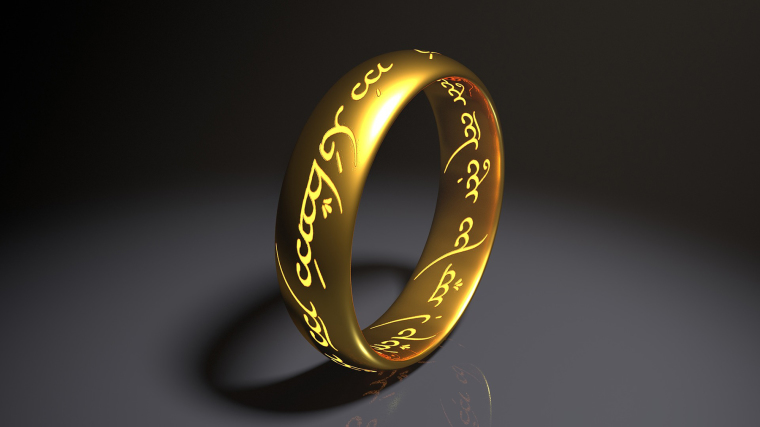
Caught in my mind recently and swirling around in my head during these last few weeks has been a particular quote from The Lord of the Rings. The Sunday Times in the UK has been quoted as saying that the whole of the English-speaking world is divided into those who have read The Hobbit and The Lord of the Rings, and those who are going to read them. And many who have not read the book have at least watched the movies.
So given that particular factoid I'm just going to move ahead in this article without summarizing the book and movie just to provide complete context for this quote (praying and hoping it's not hyperbole).
The quote in question comes from the mouth of Faramir, brother of Boromir. Some of you may recall Boromir tried to take the ring from Frodo. Later Frodo and Sam with the ring end up at the mercy of Faramir.
Once Faramir knows Frodo has the ring this line is uttered "A chance for Faramir, captain of Gondor, to show his quality."
In the book Faramir when tempted refuses to try to take the ring as his brother Boromir did, and in so doing displays a different character than that of his brother, and strength of moral fortitude.
I was thinking about this line and this action by Faramir in the book. What does it mean to display 'quality' of choice or character? And is this a virtue we have perhaps neglected in modern society and usage. It seems to our ears such a saying is almost antiquarian and dated. And if you read older books you may encounter similar uses of moral terms that seem to be these days out of fashion in English usage. In this particular case we can deduce that Faramir displays quality because he refuses the lure of the ring.
In this instance we could call quality the ability to resist temptation. To make difficult moral choices. We admire Faramir because he chooses not the take the ring from Frodo, as his brother Boromir did, but instead resists the temptation of the ring; he denies himself something he may desire for a greater cause. In this way he is selfless and displays strength of character. But not just so much in this one choice, it may be noted, but he is developed enough that he does not consider taking the ring a good option.
Quality and the times
As well as many moral terms being dropped from general usage it's interesting to note the characteristics of the society we live in. We live in times in which many live for highs and the next personal thrill or party. In a sense often selfishness and instant gratification is normalised. Character development is that difficult thing, why should it be so high on the agenda when the only moments we have to live are now. If I can have a new experience or a new thrill, why shouldn't I take it, instead of turning something dubious down for a higher principle? I am sure most people would take the experience over the hard moral choice, because you only live once. That is how many people do live their lives.
In contrast, developing character involves practise in the opposite. Practising self control instead of instant gratification. Thinking of others and doing a duty for them rather than living for yourself. In that same vein it also involves considerations of others and a sense of empathy. Worked out in the hard and small moral decisions in life. This is what we may call quality of character, making the significant choices in the small things so they will matter even in the big things. Which is what I meant earlier about the choice Faramir makes in regard to the ring being a developed decision of his whole character not just a once off.
If you consider it, we have all experienced this in some form or another in our upbringing, when you had to delay gratification for something. Such as completing your homework before being given a chocolate biscuit (or lets go with a mallowpuff for my fellow Kiwis). The ability to not have what you want straight away is a small exercise in building character.
The difference is when you are older it is not your parents that are responsible for developing your character, but you are responsible for developing it yourself. Your choices, and especially your moral choices, are what grant you the particular character you have.
In Faramir's action there is a sense of something heroic we admire in making the right choice. It is an odd aspect of character that we almost always admire it in others but at the same time we may not practise it. We willingly fall into temptations because we enjoy it and so buy into the spirit of the world not the spirit of God. We see others living for themselves and see how much harder our lot will be if we continuously resist temptations. But I don't think Christianity was meant to be easy, by necessity it does involve a lot of character development. It was G.K. Chesterton who said "Christianity has not been tried and found wanting; it has been found difficult and not tried."
Quality and Christianity
The letters of 1st and 2nd Timothy are good examples of character exhortation in which the apostle Paul encourages the young Timothy to run the race for Christ Jesus. In particular Paul says to Timothy, "But you, man of God, flee from all this, and pursue righteousness, godliness, faith, love, endurance and gentleness. Fight the good fight of the faith…" (1 Timothy 6 verses 11-12).
In the larger picture of Christian belief the development of character is not temporary, but rather for a Christian our moral choices should have a great weight, because we know our destiny does not end on death.
Our moral choices in this life matter as they can either bring us closer to God or push us further away, and the choices and good we work in this life will last beyond this life and into the new heavens and the new earth. God in the end will bring things to fulfilment, and our moral actions still matter profoundly.
In this age in which moral character is tossed aside by the wayside, may we as Christians show true quality of character in this world, and lead the way with our lives.
Peter Rope's previous articles may be viewed at www.pressserviceinternational.org/peter-rope.html